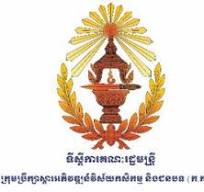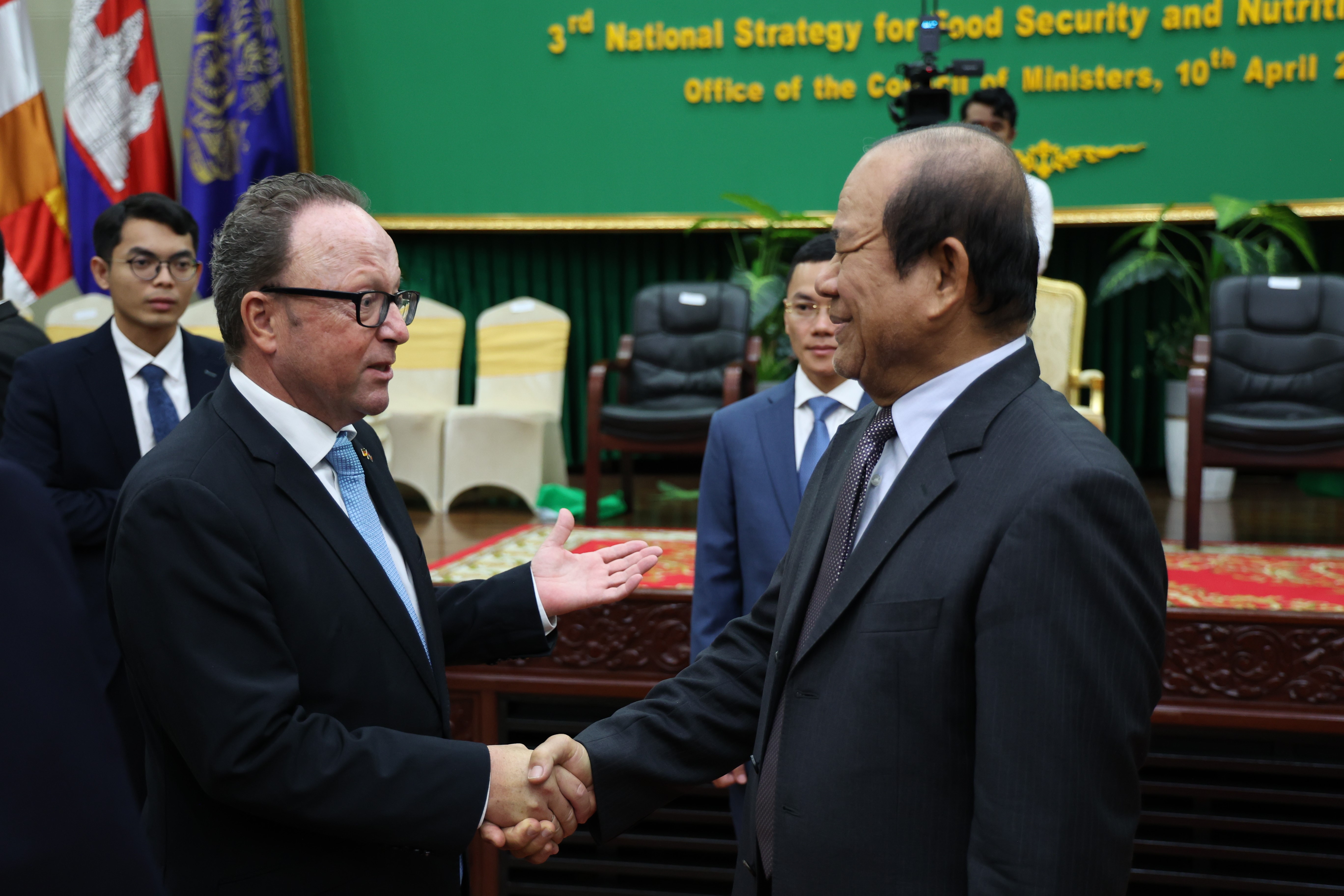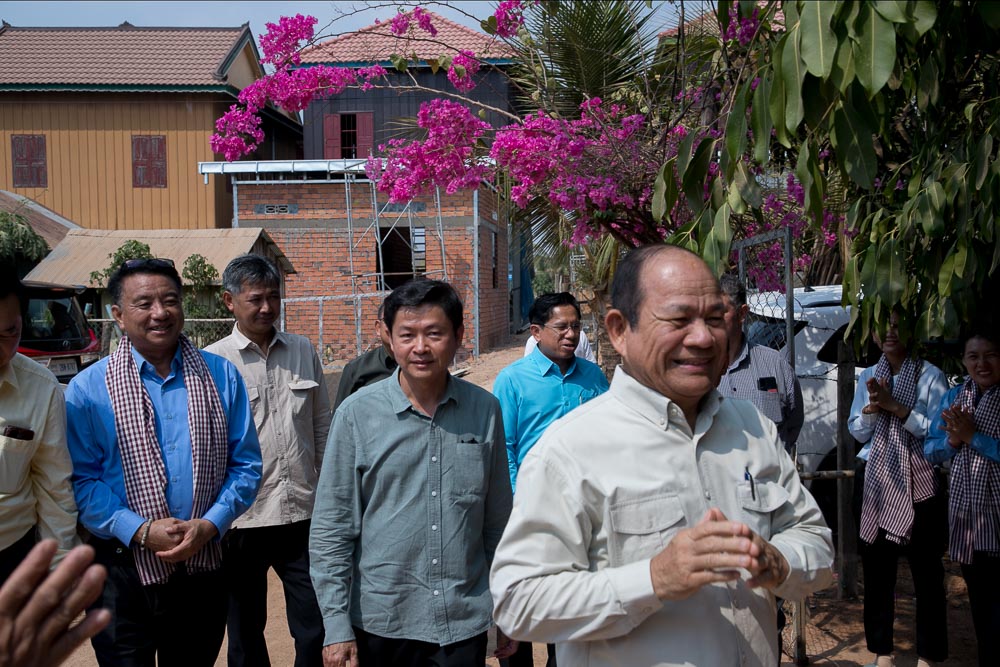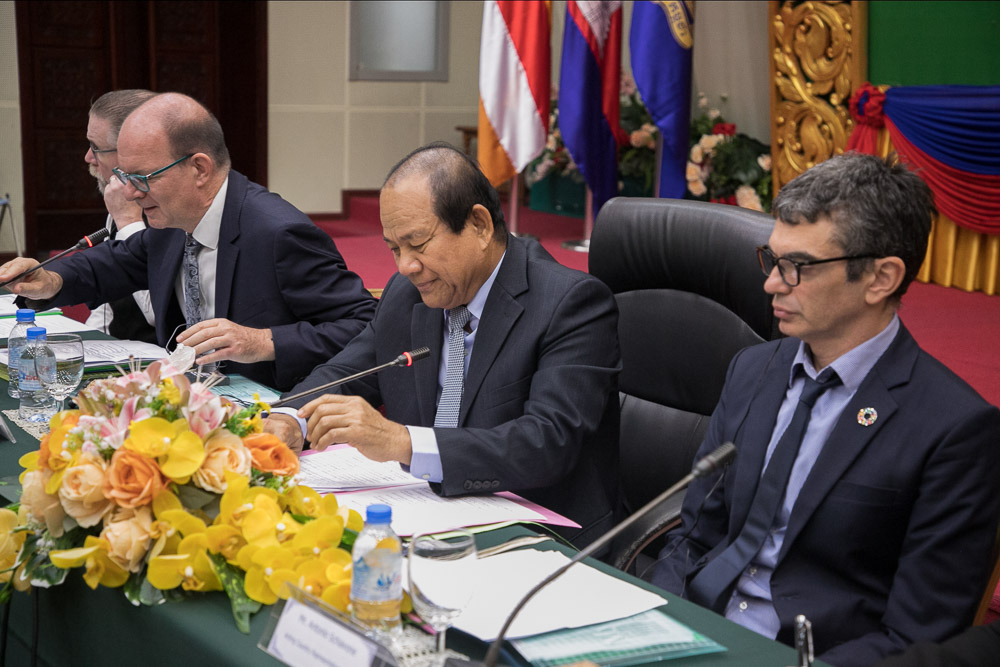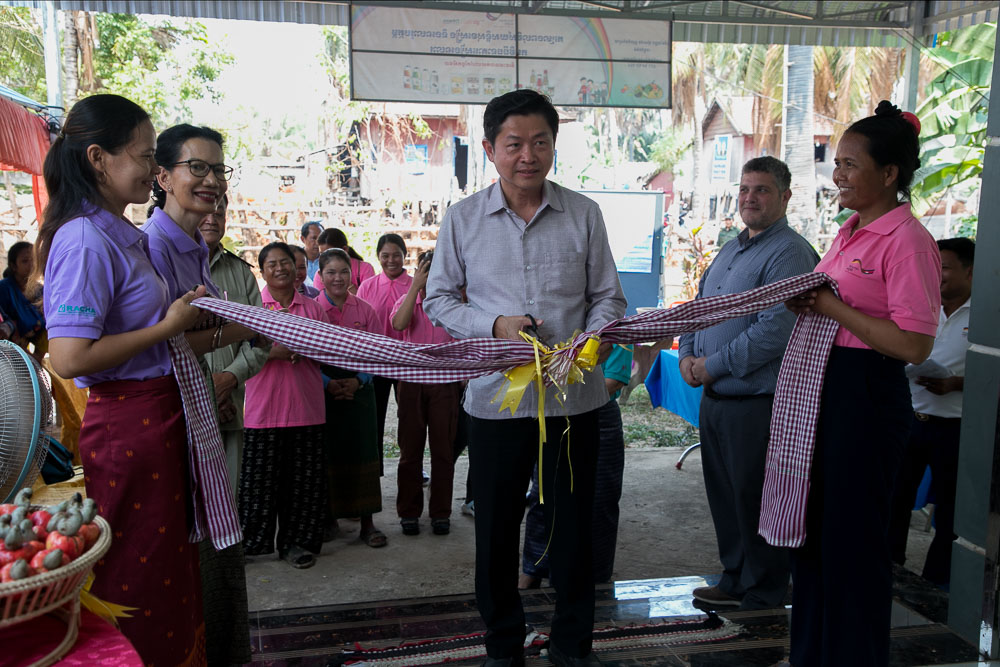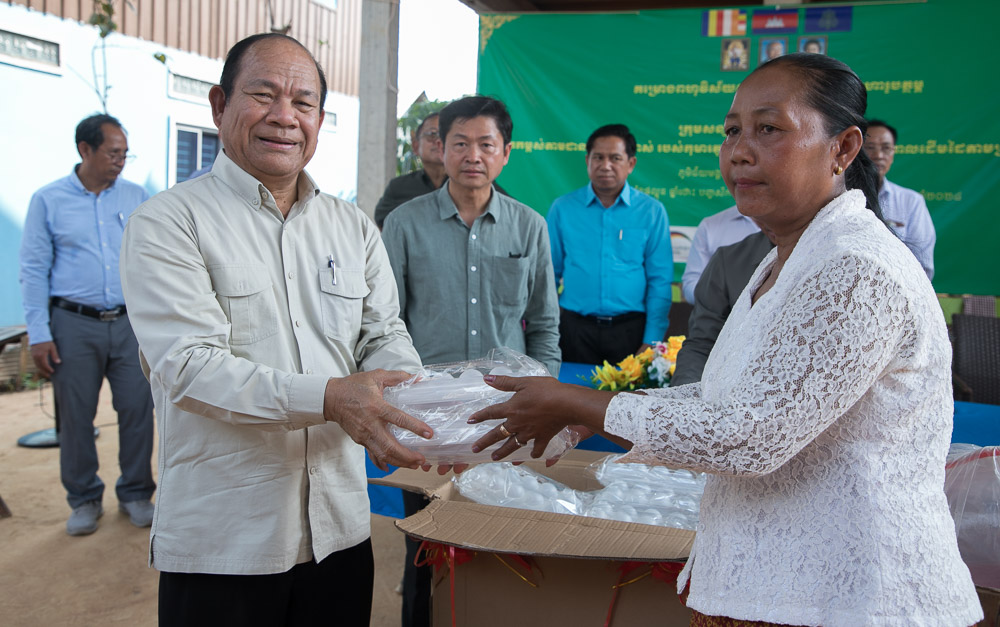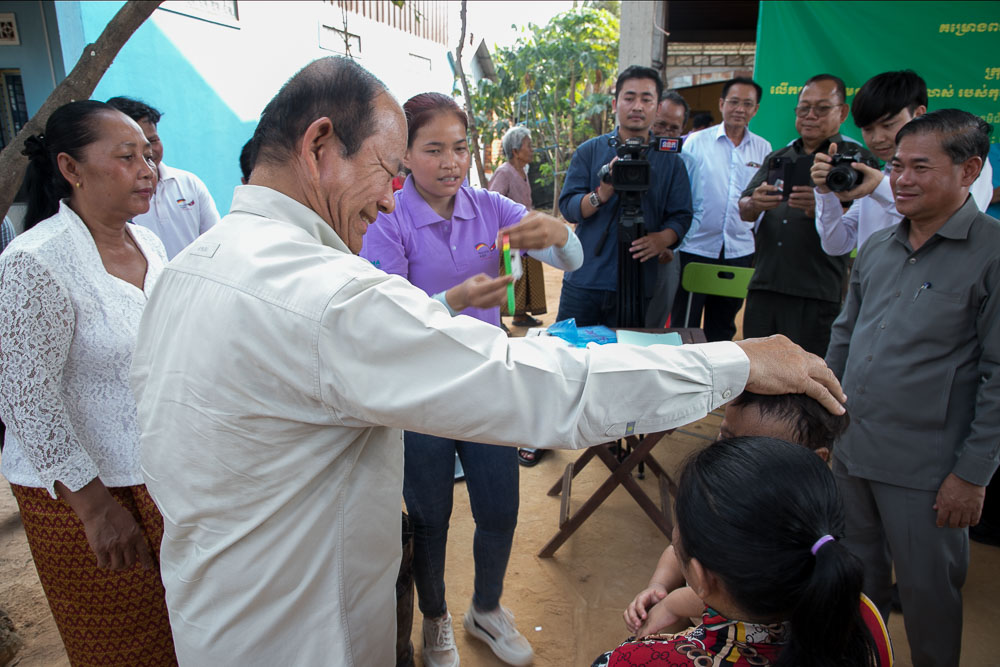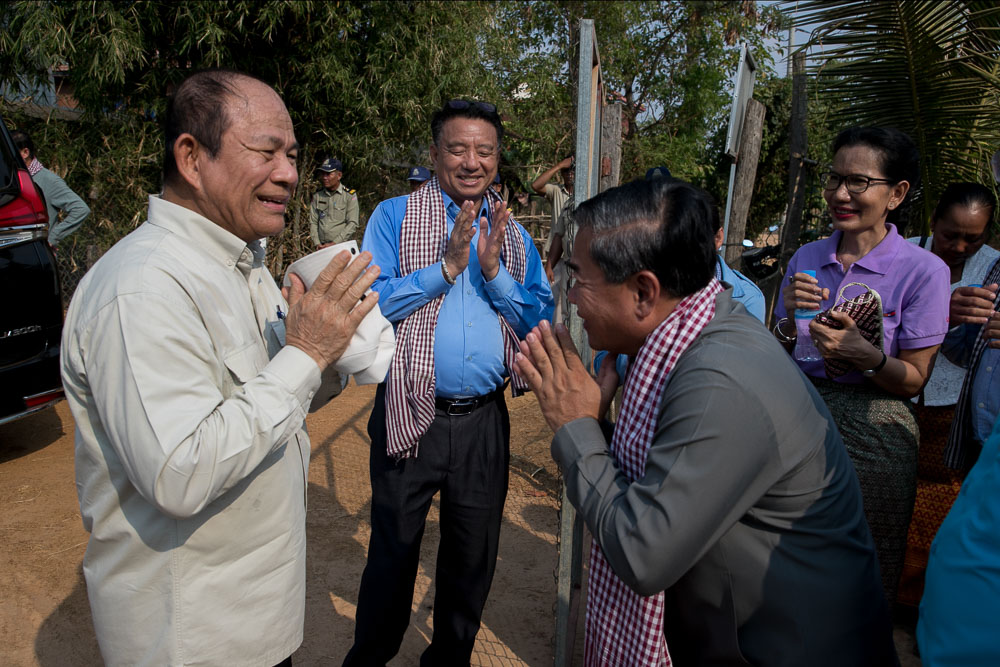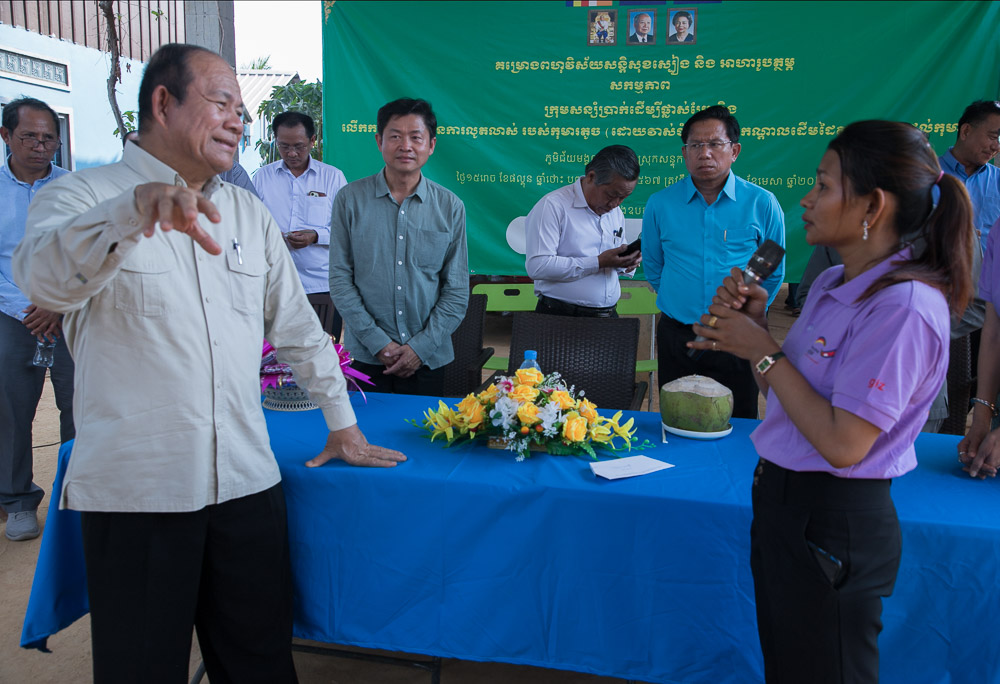
About CARD
The Council for Agricultural and Rural Development (CARD) was formally established on 31 December 1998 through a Royal Decree of the Royal Government of Cambodia (RGC). Since its inception, CARD has played a central role in coordinating and guiding the country’s efforts in agricultural and rural development. The Council is currently chaired by His Excellency Deputy Prime Minister Dr. Yim Chhay Ly, who provides strategic leadership and ensures alignment with national priorities.
As the government’s focal point for agricultural and rural development, CARD works closely with a wide range of ministries and institutions. These include the Ministry of Agriculture, Forestry and Fisheries; the Ministry of Rural Development; and the Ministry of Water Resources and Meteorology, among others. By bringing these institutions together, CARD ensures that development programmes and initiatives are implemented effectively and efficiently, maximizing the impact of available resources. This collaborative approach is designed to avoid duplication, foster synergy, and deliver cost-effective results across the sector.
Following the First National Seminar on Food Security and Nutrition, held in April 1999, the Government of Cambodia expanded CARD’s mandate. Through Circular No. 05 dated 26 May 1999, CARD was designated as the coordinating body for food security and nutrition (FSN) activities in the country. This decision recognized the importance of a unified mechanism to address Cambodia’s challenges in food and nutrition security. Since then, CARD has worked in close partnership with relevant ministries, local authorities, development partners, and both international and local organizations. Together, these stakeholders implement the recommendations from the National Seminar and contribute to Cambodia’s broader goals of poverty reduction, improved health, and sustainable rural development.
The SUN Movement in Cambodia
The Scaling Up Nutrition (SUN) Movement is a global initiative launched in 2010 with the aim of ending malnutrition in all its forms. Today, it brings together 61 member countries worldwide, each committed to strengthening nutrition outcomes through a multisectoral and multi-stakeholder approach. The movement is supported by the SUN Movement Secretariat (SMS), which is based in Geneva and led by Ms. Gerda Verburg, United Nations Assistant Secretary General and SUN Movement Coordinator.
Cambodia officially joined the SUN Movement in 2014, reaffirming its commitment to address malnutrition as a key national priority. Within Cambodia, SUN is led by the SUN Government Focal Point, His Excellency Dr. Sok Silo, Secretary General of CARD. Under his leadership, Cambodia has embraced the SUN framework, building stronger collaboration between government institutions, development partners, civil society, and the private sector to accelerate progress in nutrition.
At present, three active SUN Networks are operating in Cambodia to support the government’s nutrition agenda:
- The SUN Donor Network: This network brings together development partners providing financial and technical assistance for nutrition programmes. USAID initially served as the convener until December 2018, after which the German Embassy assumed this role with technical support from GIZ, particularly through the Multisectoral Food and Nutrition Security Project (MUSEFO).
- The SUN Civil Society Alliance (CSA): This alliance, convened by Helen Keller International (HKI), comprises 42 civil society organizations, both local and international. The CSA plays a vital role in advocacy, service delivery, and accountability. A comprehensive mapping exercise of civil society organizations actively engaged in food security and nutrition has already been completed, helping to strengthen coordination and collaboration.
- The SUN UN Network: Chaired by the World Food Programme (WFP), this network coordinates the efforts of United Nations agencies in Cambodia to provide technical support, advocacy, and resources for scaling up nutrition interventions.
A fourth network, the SUN Business Network, is currently being established in Cambodia. Led by WFP, this network seeks to engage the private sector more effectively in addressing malnutrition. By mobilizing businesses around nutrition-sensitive investments and corporate social responsibility initiatives, the SUN Business Network is expected to add a new dimension to Cambodia’s efforts in tackling malnutrition.
Technical Working Group on Food Security and Nutrition
To further strengthen development coordination, the Royal Government of Cambodia established a series of Technical Working Groups (TWGs) in 2004. These TWGs were designed to serve as formal platforms for dialogue and coordination between the government, development partners, and civil society. Their main purpose is to support the achievement of national development priorities as outlined in the Rectangular Strategy, the National Strategic Development Plan, and other sectoral, thematic, and reform programmes. According to the 2015 TWG Performance Review, nineteen TWGs are currently active, covering a broad spectrum of development sectors.
Among these, the Technical Working Group on Food Security and Nutrition (TWG-FSN) holds particular significance. Established in December 2004, the TWG-FSN is chaired by His Excellency Dr. Yim Chhay Ly, Deputy Prime Minister and Chairman of CARD. It is co-chaired by Mr. Benjamin Knödler from the German Embassy and Mr. Alexandre Huynh, the Food and Agriculture Organization (FAO) Representative in Cambodia. This high-level leadership reflects the importance placed on FSN as a cornerstone of national development.
The overarching mandate of the TWG-FSN is to support the government’s efforts in three key areas:
(a) the implementation of sectoral plans and reforms;
(b) the mobilization and coordination of financial and technical resources; and
(c) the delivery of tangible development results.
The TWG-FSN does not duplicate or replace the functions of line ministries and agencies. Rather, it plays a complementary role by facilitating coordination, aligning strategies, and ensuring that all partners contribute effectively toward national goals. Through its work, the TWG-FSN provides a structured platform for policy dialogue, joint planning, and monitoring of progress in food security and nutrition.
Conclusion
CARD, the SUN Movement, and the TWG-FSN together represent critical pillars of Cambodia’s efforts to improve agricultural productivity, enhance food security, and eliminate malnutrition. Through effective coordination across government institutions, development partners, civil society, and the private sector, Cambodia has been able to mobilize significant resources and expertise. These mechanisms not only contribute to improved nutrition and food security but also support the broader goals of sustainable development, poverty reduction, and human capital development.
By strengthening collaboration at all levels, Cambodia is laying the foundation for a healthier, more prosperous future. CARD’s leadership, combined with the global support of the SUN Movement and the inclusive dialogue facilitated through the TWG-FSN, continues to guide the nation in addressing its most pressing development challenges.
